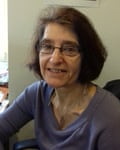Five nominees have been shortlisted for this year’s public servant of the year award. Voting is now closed.
Our final winner will be a public servant who has contributed outstanding work and made a real difference. The five candidates have been chosen by our judges and all have met the award criteria. They all:
embody the very spirit and ethos of public service
have gone the extra mile for service users and made a real difference to outcomes
have overcome challenges in their public service role
Voting has now closed.
Please note: you may only vote once. We de-duplicate multiple votes!
The winner will be announced at the Public Service Awards ceremony on 26 November 2019 and a special supplement will be published online and in the Guardian newspaper on 27 November 2019.
The finalists, in alphabetical order by surname, are:
Diane Audin, foster carer, Tree House Care

Diane Audin doesn’t like to have an empty house. After a divorce and the death of her father, she began fostering, and in the 24 years since has taken more than 70 children into her home in Barnsley, South Yorkshire.
Audin, who has two children of her own, five grandchildren and seven great-grandchildren, does all she can to make the children she cares for feel part of her family. She has been nominated for her unfailing dedication to understanding and helping children whose lives have so far been traumatic, damaging and unsafe.
“It’s about giving them a lot of love and trust,” Audin says. “It’s just giving them a normal life. They don’t know what normality is, some of them. You’ve got to live their life and see things differently from how an adult sees them.”
Her nomination praises her commitment to learning specialist therapeutic parenting techniques and to supporting other foster carers who may be going through difficult times.
Having previously been a care worker in a residential home, a barmaid and a silver service waitress, Audin says fostering has been her best job by far. “I just love it,” she says. “It’s nice to see them come up.”
Charles Cracknell, youth enterprise manager, Hull city council

When Charles Cracknell began this job in Hull 16 years ago, he realised there was a gap in what he could provide: despite strategies in place to encourage young people to set up in business, there was no funding available.
So Cracknell decided to use some of his own money to create a bursary scheme in his late father’s memory. Since 2004, with further funding from grant-making organisations and local businesses totalling £350,000, the John Cracknell Youth Enterprise Bank has provided mentoring and grants of up to £1,000 to 565 youngsters aged 13 to 21, supporting everyone from chocolatiers to makers of motivational sportswear. It also helps fund enterprise education in schools for pupils as young as four.
In 2016, Cracknell also created an enterprise skills training programme for young people who are hard to reach or on benefits, and helped develop a teachers’ group that works on enterprise curriculum materials. His nomination praises the way he is available seven days a week and at all hours to support young entrepreneurs.
Cracknell, whose new focus is on care leavers, says: “I will look at any opportunity and bring them together to find the solution for the youngster who needs something.”
Gwyne Diment, manager, Cedar Community Club

When the club Gwyne Diment had managed for 14 years was forced to close due to local government cuts in 2018, she was determined the older people who depended on it would not be left without somewhere to go.
An anonymous donation from a member led her to set up a daycare centre. She inspired six local residents to become trustees and then worked tirelessly for nine months, unpaid, to open the club in Hinton Waldrist, Oxfordshire.
Ten months on, it now has 18 members, who have the chance to socialise and try new activities – such as singing – two days a week. Several members have dementia and the club gives their carers vital support and respite.
Diment’s nomination calls her “a shining example of a social conscience” who is committed to ensuring the lives of elderly people are meaningful and valued, and has helped relieve the loneliness and isolation they often experience.
Diment, a nurse who has worked in day care provision for 25 years, says: “I’m passionate about providing a service for these people who really, really wanted it.”
Liza Dresner, director, Resources for Autism

Back in 2006, when Liza Dresner took the helm at Resources for Autism (RfA), it was a small organisation struggling financially and offering limited services in one London borough.
Today, thanks to Dresner’s tenacity and resilience, it is versatile and thriving, offering services throughout Greater London and the West Midlands, including 43 groups a week in termtime and 10 school holiday playschemes.
Last year, 283 people received home or community support, and the charity’s project helping autistic adults into volunteering roles suiting their talents and aspirations has helped 250 people, some of whom found paid employment as a result.
Dresner, who began her career as a social worker with under-fives in 1982, believes continuity is key for RfA’s users. “We work cradle to grave,” she says. “Conditions like learning disability and autism are lifelong and if you don’t offer some kind of lifelong service or support then you’re failing families.”
Her nomination says her ability to listen to people with autism and their families, and adapt services to their needs, has made a real difference to their lives.
Mark Fennelly, regional operations manager and head of IT, St Anne’s Community Services

Mark Fennelly has been working with people with learning disabilities since he was 16, when he volunteered at a hospital as part of the Duke of Edinburgh award scheme.
He joined St Anne’s Community Services, which provides services in the north of England for people with learning disabilities, as a nurse 27 years ago, and has risen through the ranks to become a senior manager who inspires nothing but respect and trust among his staff, according to his nomination. Fennelly says his frontline experience means he understands how hard those jobs are.
The relationships he has built with commissioners are credited with ensuring services have been recommissioned year after year, giving vulnerable clients – who also include people with mental health issues and substances problems, and those who are homeless – accommodation and standards of care that allow them to live rich and fulfilling lives.
Fennelly’s nomination says he embodies the public service values of integrity, perseverance, spirit of service and commitment. “I have this view that you should only ever deliver things you’d want for yourself,” he says. “My job is to have the best staff, because those that want to make a real difference give the best service to the clients.”
